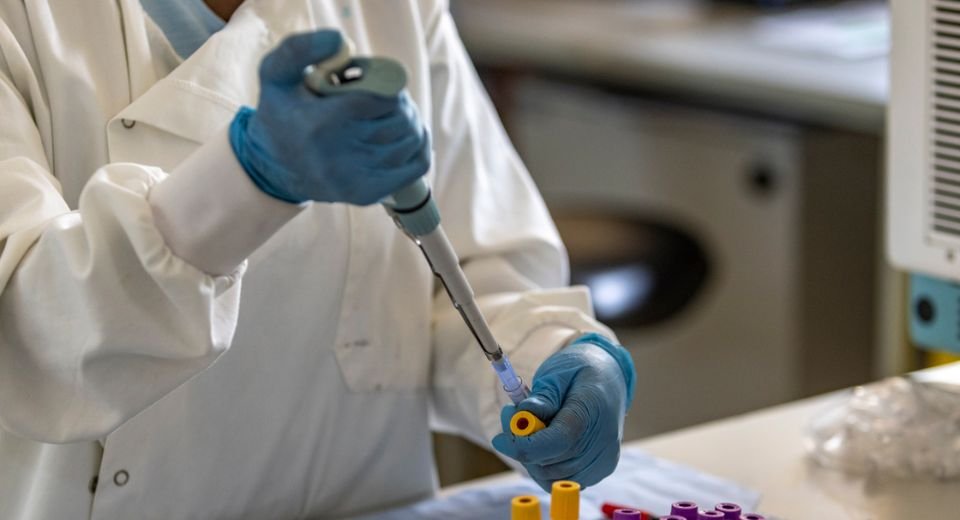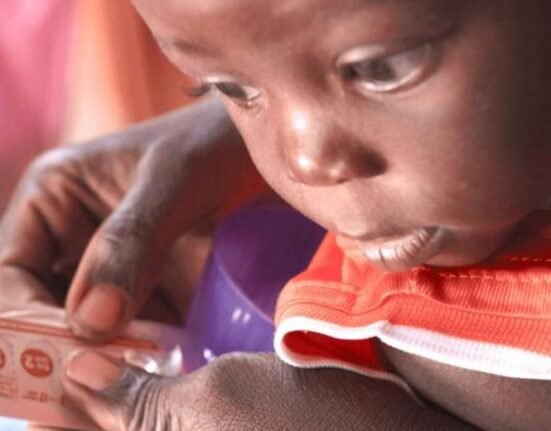HQ Team
February 4, 2025: The first-ever clinical efficacy trial of a vaccine for Ebola disease arising out of the Sudan virus has started in Uganda, the WHO stated.
It is also the first clinical trial of this vaccine during an outbreak, according to a statement from the World Health Organization.
The vaccine provider, the International Aids Vaccine Initiative (IAVI), has already conducted the necessary first and second-stage trials to ensure safety and immunogenicity.
The partners include Uganda’s Ministry of Health, the WHO and others who started the trial at “an unprecedented speed for a randomised vaccine trial, in an emergency.”
The trial was initiated within four days since Uganda announced an outbreak of Ebola in the capital, Kampala, with a single case, a 32-year-old male nurse who died on January 30.
rVSV candidate vaccine
The randomised vaccine trial is meant to assess the recombinant vesicular stomatitis virus (rVSV) candidate vaccine.
“The speed was achieved through advanced research preparedness while ensuring full compliance with national and international regulatory and ethical requirements,” according to the statement.
“This is a critical achievement towards better pandemic preparedness, and saving lives when outbreaks occur,” said Dr Tedros Adhanom Ghebreyesus, WHO’s Director-General.
“This is possible because of the dedication of Uganda’s health workers, the involvement of communities, the Ministry of Health of Uganda, Makerere University and UVRI, and research efforts led by WHO involving hundreds of scientists through our research and development Filoviruses network.”
Ring vaccination cluster
In 2022, during the previous outbreak of Ebola disease (also from the Sudan species of the virus) in Uganda, a randomised protocol for candidate vaccines was developed.
Principal investigators were designated under the leadership of the Minister of Health, and teams were trained to allow such a trial during an active outbreak.
The trial is a ring vaccination cluster randomized trial designed to assess the effect of one single, promptly given, dose of the candidate vaccine whose safety and immunogenicity have already been demonstrated in Phase 1, in protecting recent contacts and contacts of contacts of a newly confirmed case of Sudan virus disease.
Ring vaccination consists of the targeted vaccination of the recent contacts of an index case. It might protect the individual vaccinated or help create a small buffer zone of immunized people that could limit the propagation of the infection.
No licensed vaccine
The ring vaccination trial involves a population at increased risk of infection as they have recently been in contact with a case of Sudan virus disease, so it may well provide useful information about the protection of such case contacts quickly, within just a few months.
Three vaccination rings were defined. The first ring involves about 40 contacts and contacts of contacts of the first reported and confirmed case, a health worker who has died.
Although several promising candidate medical countermeasures are progressing through clinical development, as of now, there is no licensed vaccine available to effectively combat a potential future outbreak of Ebola disease from the Sudan species of the virus.
Licensed vaccines and treatments exist only for the disease caused by the Ebola virus, formerly known as Zaïre ebolavirus.
Fatal disease
The vaccine for the trial was recommended by an independent WHO candidate vaccine prioritization working group. If the candidate vaccine is effective, it can generate data for vaccine licensure.
Ebola virus disease is a rare but severe illness in humans. It is often fatal.
The average Ebola case fatality rate is around 50%. Case fatality rates have varied from 25–90% in past outbreaks, depending on circumstances and the response.








